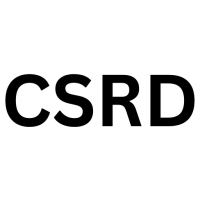Summary
Cut through the green tape
We don't push agendas. At Net Zero Compare, we cut through the hype and fear to deliver the straightforward facts you need for making informed decisions on green products and services. Whether motivated by compliance, customer demands, or a real passion for the environment, you’re welcome here. We provide reliable information—why you seek it is not our concern.
Details
- European Union
Deep dive
Background
The Corporate Sustainability Reporting Directive (CSRD) is an initiative by the European Union (EU) aimed at enhancing corporate transparency on environmental, social, and governance (ESG) matters, including carbon emissions. Adopted in 2022 and effective from 1 January 2024, the CSRD replaced and expanded upon the Non-Financial Reporting Directive (NFRD) which was first released in 2014. The NFRD required large public-interest companies with over 500 employees to report on sustainability-related risks and impacts. The NFRD was however criticized for its lack of clear guidelines resulting in inconsistent and often superficial disclosures, reducing stakeholders' ability to effectively assess corporate sustainability disclosures. Some of the NFRD's shortcomings were later addressed with the publication of further clarifications such as the guidelines on reporting climate-related information (2019). The CSRD goes further by establishing a more comprehensive reporting framework under the European Sustainability Reporting Standards (ESRS), requiring companies to provide externally audited sustainability data, including on carbon emissions and climate-related financial risks. The CSRD is a major policy tool within the European Green Deal which aims for an EU economy with no net emissions of greenhouse gases by 2050.
EU directives such as the CSRD are to be transposed into the national laws of EU Member States. Article 5 of the CSRD set a deadline of 6 July 2024 for the enactment of laws, regulations and administrative mechanisms necessary for compliance with the provisions of the CSRD. As of 17 January 2025, 17 EU Member States have transposed the CSRD into national legislation, eight Member States have published draft legislation with consultations ongoing, while four Member States are yet to start the transposition process.
Requirements of the CSRD
Under the CSRD, affected companies (see next section) must make detailed sustainability disclosures including climate-related information such as greenhouse gas (GHG) emissions, climate risks and opportunities, and strategies for reducing their GHG emissions in the context of their climate mitigation and adaptation strategies. Reporting must follow the European Sustainability Reporting Standards (ESRS), which is consistent with the recommendations of the Task Force on Climate-related Financial Disclosures (TCFD) and the Greenhouse Gas Protocol. Companies must disclose, in carbon dioxide equivalent (CO2-eq), their Scope 1 (direct emissions), Scope 2 (indirect emissions from purchased electricity), and Scope 3 (emissions from the value chain) data. Companies' reports must be digitally tagged (i.e. computer-readable) for integration into the European Single Access Point (ESAP), a public repository of financial and sustainability-related information on EU companies and investment products. Moreover, the CSRD requires companies to conduct climate risk assessments and disclose their transition plans, including how their business models align with the EU’s 2050 carbon neutrality ambition set out in the European Green Deal. To ensure the accuracy of disclosures, sustainability reports must pass through third-party assurance or external audits.
Which companies are affected?
The CSRD has significantly increased the scope of corporate sustainability reporting. While around 11,000 companies were required to report under the NFRD, the CSRD covers approximately 50,000 entities, including EU-based firms and non-EU-based firms making above a certain amount of revenue from the EU market. More specifically, the CSRD applies to:
All large companies listed in the EU that meet two out of the following criteria: a workforce of over 250 employees, assets of over €20 million and revenue of over €40 million.
Listed Small and Medium Enterprises companies in the EU, including Small and Medium Enterprises.
Non-EU companies that generate above €150 million in the EU market.
Implementation timeline
The implementation of the CSRD will be conducted in phases, beginning with the large companies:
For large companies previously subject to the NFRD, CSRD rules shall apply with effect from financial years starting on/after 1 January 2024, for reports published in 2025.
For large companies not previously subject to NFRD, CSRD rules shall apply from financial years starting on/after 1 January 2025, for reports published in 2026.
For listed SMEs including small and non-complex financial institutions, CSRD rules apply with effect from financial years starting on/after 1 January 2026, for reports published in 2027, with an opt-out possible until 2029.
For some non-EU based companies, CSRD rules shall apply with effect from financial years starting on/after 1 January 2028, for reports published in 2029.
Penalties for noncompliance
The CSRD does not stipulate specific penalties for non-compliance as enforcement of the directive is largely the responsibility of individual EU Member States. There is some flexibility or discretion in implementing the CSRD with each country taking into consideration existing sustainability disclosure regulations and enforcement processes, including penalties for noncompliance. All the 17 countries with CSRD-inspired national laws in force have established sanctions for noncompliance. In France, for instance, which took the lead in transposing the CSRD into national legislation, corporate executives may face fines of up to €75,000 and imprisonment for up to five years if they fail to provide the required information for external auditors to certify their CSRD-compliant reports or if they hinder the auditing process in any way. Additionally, they could be sentenced to up to two years in jail and fined up to €30,000 for not having their CSRD report audited by a certified entity. In general, false climate-related disclosures could expose businesses to legal liability, given that stakeholders such as investors and regulators depend on these reports for decision-making. The reporting of false climate-related information is already sanctionable under existing legislation in some EU Member States, especially with anti-greenwashing regulations aiming to prevent misleading corporate environmental claims.


